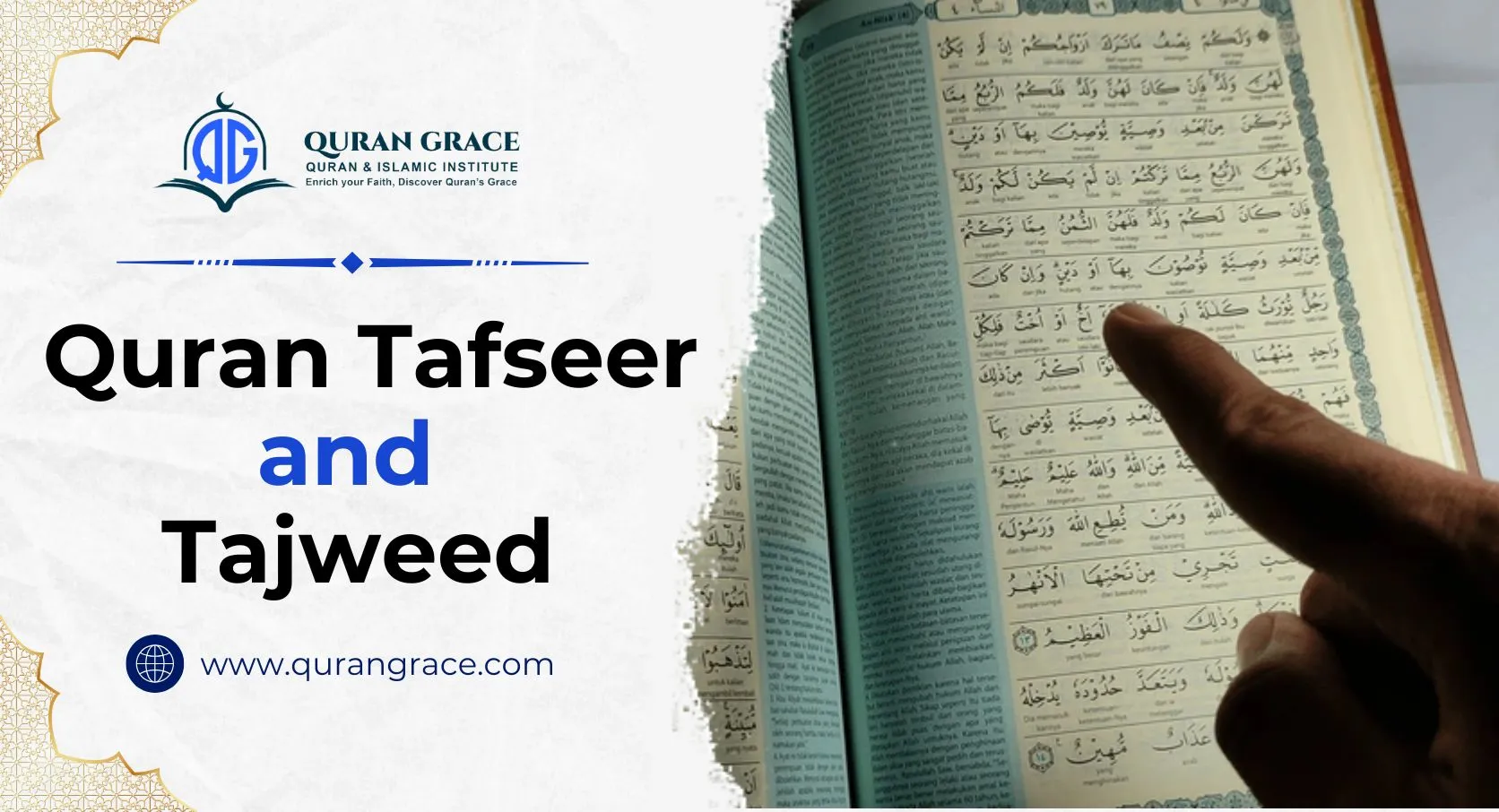For those just starting to read and comprehend the Quran, you’ll come across two key terms: Tajweed and Tafseer. Tajweed is crucial for proper recitation, while Tafsir is vital for grasping the meanings within the Quran. It is beneficial to explore the distinct differences and deeper meanings of these two crucial components because they are both very important.
Table of Contents
ToggleWhat is Tajweed?
Tajweed refers to the proficiency in reciting the Quran correctly. It emphasizes the importance of articulating the letters and words accurately, which not only pleases Allah but is considered rewarding. For non-Arab students, it is highly essential to master for correct Quran reading.
For those interested in mastering Tajweed, various online tajweed classes are available that teach the necessary rules and steps. However, becoming proficient in recitation requires dedicated effort and consistent practice. The more one engages with reading the Quran, the more skilled they will become.
Key Aspects of Tajweed
Tajweed is an essential aspect of Quranic recitation that ensures the accurate pronunciation of Arabic letters and words. It emphasizes a melodic and harmonious tone, which enhances the beauty of the reading. Practicing tajweed involves adherence to specific rules and rhythmic patterns, reflecting a deep reverence for the Quran’s sacred text.
Furthermore, tajweed facilitates a better understanding of the Quran’s meanings and messages, strengthening the spiritual connection between the reader and the Quran. It has six types of rules, which include
- Makharij-al-huroof: The articulation points of letters.
- Sifaat-al-huroof: The characteristics or attributes of letters.
- Meem and Noon Sakinah: Rules for the letters noon and meem when they are not followed by a vowel.
- Ghunna: The nasalization that occurs in certain contexts.
- Qalqalah: The echoing sound produced by certain consonants.
- Waqf-al-ibtida: The rules for stopping and starting during recitation.
Mastering these rules of tajweed not only enhances the recitation but also fosters a deeper appreciation for the Quran.
What is Tafseer?
Learning about the Quran goes beyond simply acquiring proficiency in reading it; understanding its meanings and the messages conveyed by the Creator is equally essential. While one lifetime may not be enough to fully explore the depths of the Quran, it is valuable to grasp the foundational concepts through various interpretations (tafseers). Tafsir linguistically means the interpretation or exegesis of the text. Quran Tafsir means the translation, explanation, interpretation, and commentary of the verses in great detail.
It is highly important to read the Quran with Tafseer to understand the message of Allah. Here is a list of credible Quran Tafseer that you can choose to read online/offline.
- Tafseer Ibn Kathir
- Tafseer Al-Tabari
- Ma’arif Al-Quran
- Bayan Al-Quran
- Tafhim Al-Quran
Key Aspects of Tafseer
- Tafsir focuses on decoding the meanings and messages found within Quranic verses, offering valuable insights into the historical and social contexts surrounding their revelation.
- Led by experts in Islamic studies and language, it aims to facilitate the application of Quranic teachings to everyday life.
- Tafseer also aims to adapt the wisdom of the Quran to modern situations while fostering spiritual development and understanding.
So every Muslim must enroll in tafseer course to learn and understand the Quran with proper meanings.
Major Differences Between Tajweed and Tafseer
| Tajweed | Tafseer |
| Tajweed emphasizes accurate recitation of the Quran, ensuring correct pronunciation and phonetics. Its goal is to enhance the beauty of the Quran when it is recited. | Tafseer involves understanding the Quran’s meaning and teachings, offering insights into its historical context and the deeper wisdom found in its verses. |
| The main goal of Tajweed is to master the rhythm and pronunciation of Quranic letters and words. | Tafseer focuses on interpreting the meanings, context, and messages found in the text of the Quran. |
| Tajweed has particular guidelines for pronouncing and reciting the Quran. | Tafseer interprets the Quran using a variety of linguistic, historical, and thematic approaches. |
| Qaris, or Quran reciters, are experts in Tajweed. | Quranic interpreters, also referred to as Mufassirun, are Tafseer experts. |
| Tajweed is primarily used during Quranic recitation to improve the spiritual connection and auditory experience. | Tafseer is used to help with moral, legal, and spiritual guidance when one wants a deeper understanding of Quranic verses and their implications in day-to-day life. |
Conclusion
Tajweed and Tafseer are two important aspects of Quranic study. Beginner and non-Arabic students must learn Tajweed first to recite the Quran beautifully. Then you can head forward to understand the Tafsir of the Quran. Book a free consultation at Quran Grace and check out how the classes for Tajweed and Tafseer work.








